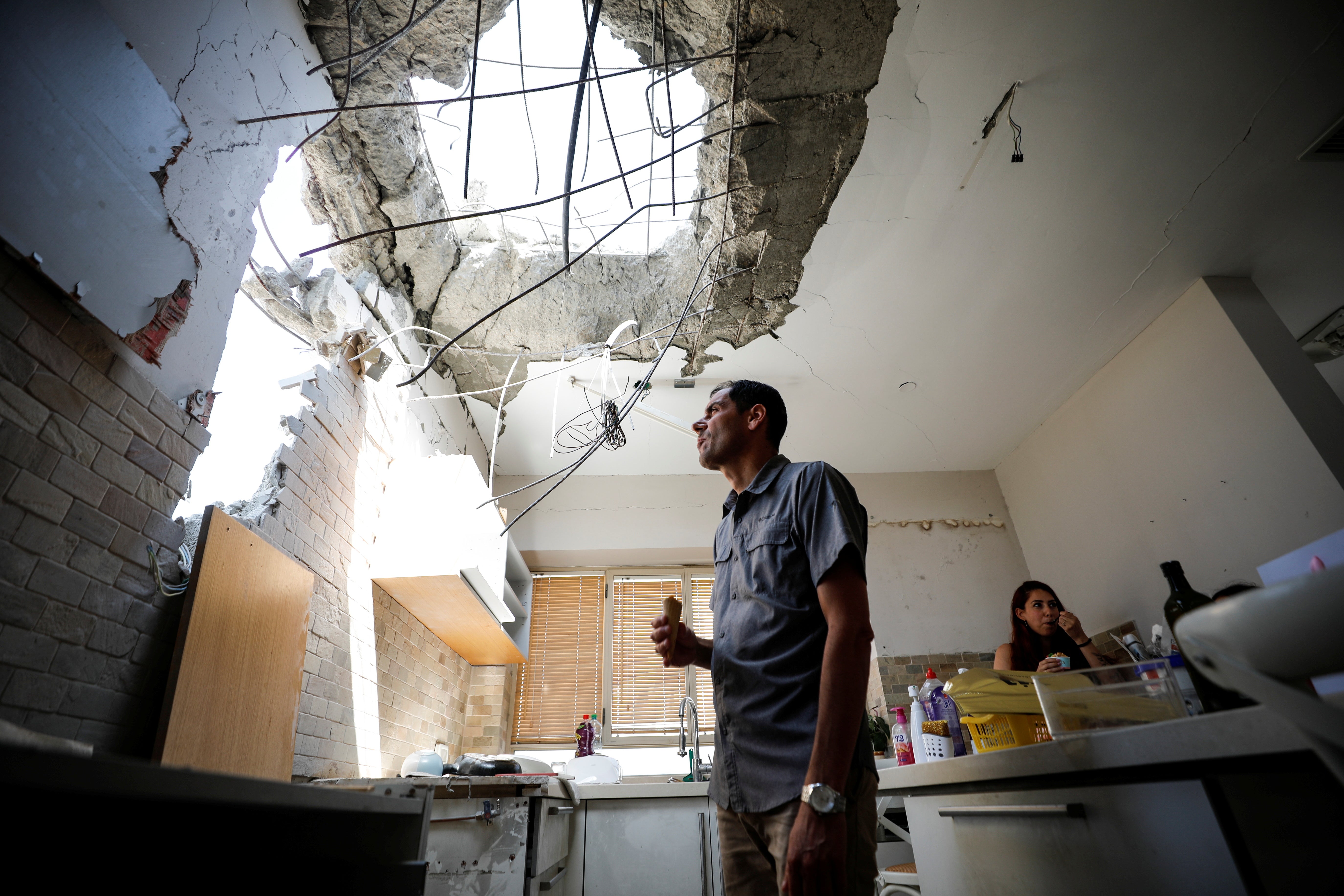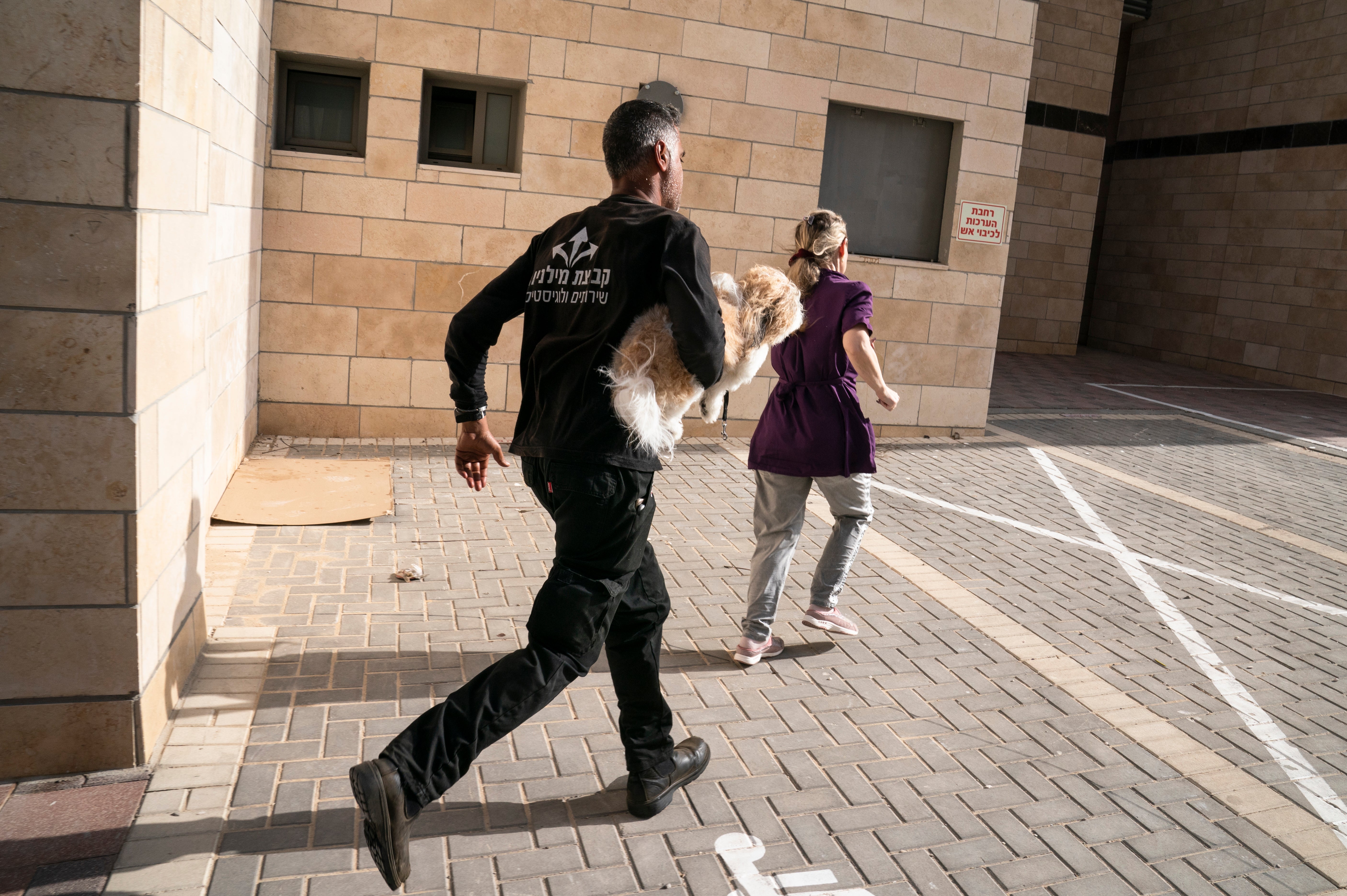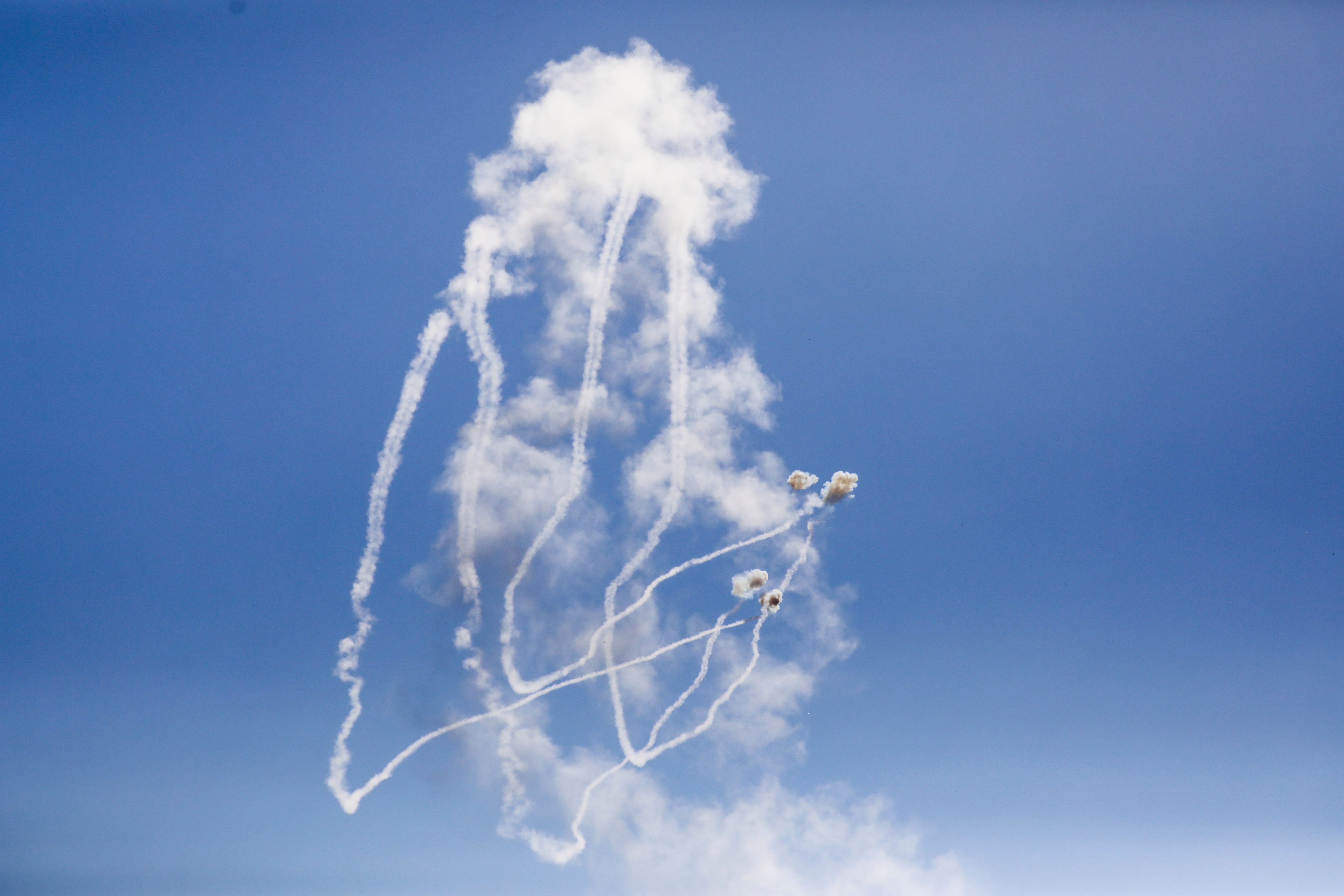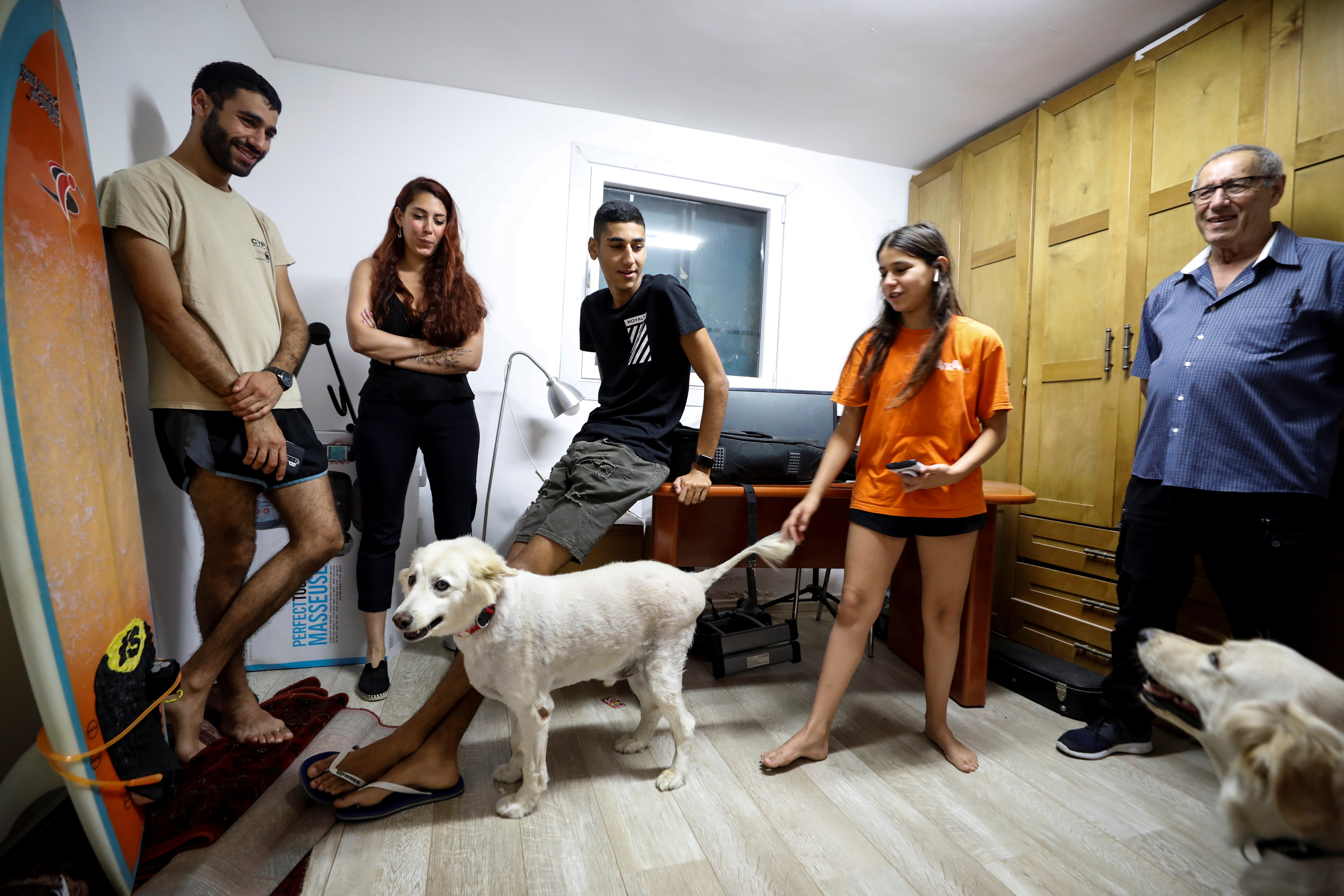In the firing line: How Ashkelon bore the brunt of Israel’s war with Hamas
More than 930 rockets were fired on the city located just 15 kilometres from Gaza, reports Bel Trew in Ashkelon


Your support helps us to tell the story
From reproductive rights to climate change to Big Tech, The Independent is on the ground when the story is developing. Whether it's investigating the financials of Elon Musk's pro-Trump PAC or producing our latest documentary, 'The A Word', which shines a light on the American women fighting for reproductive rights, we know how important it is to parse out the facts from the messaging.
At such a critical moment in US history, we need reporters on the ground. Your donation allows us to keep sending journalists to speak to both sides of the story.
The Independent is trusted by Americans across the entire political spectrum. And unlike many other quality news outlets, we choose not to lock Americans out of our reporting and analysis with paywalls. We believe quality journalism should be available to everyone, paid for by those who can afford it.
Your support makes all the difference.More rockets were fired at Israel from Gaza over the past 11 days than the entirety of the seven-week 2014 war, according to the army’s count. Nearly a quarter of them landed on Ashkelon alone.
It is a stark statistic, keenly felt in the southern Israeli city which lies under 15km from the border crossing with Gaza and so is the closest heavily populated area to the strip.
Standing beside the clawed out remains of her house that took a direct hit on Thursday, Sigal the owner says they have 30 seconds to scramble to a shelter when the sirens go off.
“That’s if you have a shelter,” she adds, her frightened dog whimpering by her side. The ground shakes sporadically from nearby rockets, the dull thud of intercepted missiles sounds overhead.
“We have never experienced such an intense number of rockets ever than this week.
“We want this to end and everyone on both sides of the border, women and children on both sides, to be safe,” she added.
The residents of Ashkelon are well versed in rocket fire but this round of ferocious fighting, which ended in a tentative ceasefire Friday morning, has seen an unprecedented amount of rockets land in Israel and on the city.
In fact, Ashkelon is the hardest hit town in the whole of Israel, according to the mayor Tomer Glam who, while doing the rounds of the damaged homes, told The Independent more than 930 rockets had been fired at residents in the last 11 days alone.
Two women, one of them in her 80s, were killed in Ashkelon during this round of violence. Two more are seriously injured, the mayor added.

And that is why he wants investment in the city before another conflict erupts: despite the bombardment on Ashkelon, it does not have the same level of protection as areas closer to the border.
“About a quarter of the 160,000 inhabitants of Ashkelon don’t have bomb shelters,” Mayor Glam told The Independent beside one bombed-out building.
“In the areas immediately around Gaza every household and many streets have shelters, because they are so close to the rocket fire. But it’s now clear, [the militants] are firing at Ashkelon because it is the most heavily populated closest city.”
He made a direct appeal to Israeli prime minister Benjamin Netanyahu for help building more shelters in the city.
“We now have to be considered as part of that Gaza [envelope],” he added.
The fierce 11 days of fighting apparently drew to a close with a ceasefire between the two sides. Over 240 people were killed in Gaza, including 66 children and 39 women according to the Gaza health ministry.
Medics in Israel said 12 were killed, including the two women in Ashkelon.
Israel’s military said approximately 4,340 rockets have been fired from the Gaza Strip at Israel with approximately 640 falling short.

The army is believed to have hit well over 800 targets in Gaza, a tiny, blockaded strip home to nearly 2 million people.
Because of the intense rocket fire after the last war in 2014 with Gaza, Mr Netanyahu presided over a huge project to build reinforced homes, and shelters for those living in Israel around 7km from Gaza.
But Hamas’ rockets appear to have improved and are now raining down on Ashkelon about double the distance away.
Sources told Israeli newspaper Haaretz that previous requests to the Prime Minister’s Office and Finance Ministry for protection in communities like Ashkelon were repeatedly rejected for financial reasons.
On Friday, after mounting pressure and public appeals from the mayor, Mr Netanyahu announced he would be assigning a budget for Ashkelon.
The coastal city has a sweeping beach front and shopping malls but also poorer neighbourhoods.
In the 1990s there was massive influx of Russian citizens, so Russian is in some areas a common language.
It is certainly heard in the more weathered and impoverished parts of the city where residents say no one has bomb shelters.
“I just run to the back of my shop and hope for the best,” says Egal, 46 who owns a mini-market along a strip.
“All these buildings are older and have no shelters. The block of flats opposite has one underground but the higher floors have none.”

Across town at the site of another recent rocket attack on a street Charlie, 55, a chef says that the saving grace for residents of the city is Israel’s Iron Dome air defence system, that first became operational in 2011 and has been maintained by $1.6 billion of US funding.
Shortly after the ceasefire, US President Joe Biden promised to help Israel replenish the pricey guided interceptors, which according to the army, have shot down up to 90 per cent of the rockets Hamas and other Gaza-based militant groups have lobbed at cities in Israel.
Charlie said that while everyone in the city is desperate for peace, a large part support extended military action in Gaza to finally stop Hamas’ capacity to fire relentlessly at them.
“Not everyone has shelter and so we put our faith in the Iron Dome, it’s our protector,” the father-of-four says near the site of the rocket hit.
“We know the next round will be much harder. It gets harder and harder every year. The people in the south need this to stop happening.”
Additional reporting by Samir al-Sharif
Join our commenting forum
Join thought-provoking conversations, follow other Independent readers and see their replies
Comments